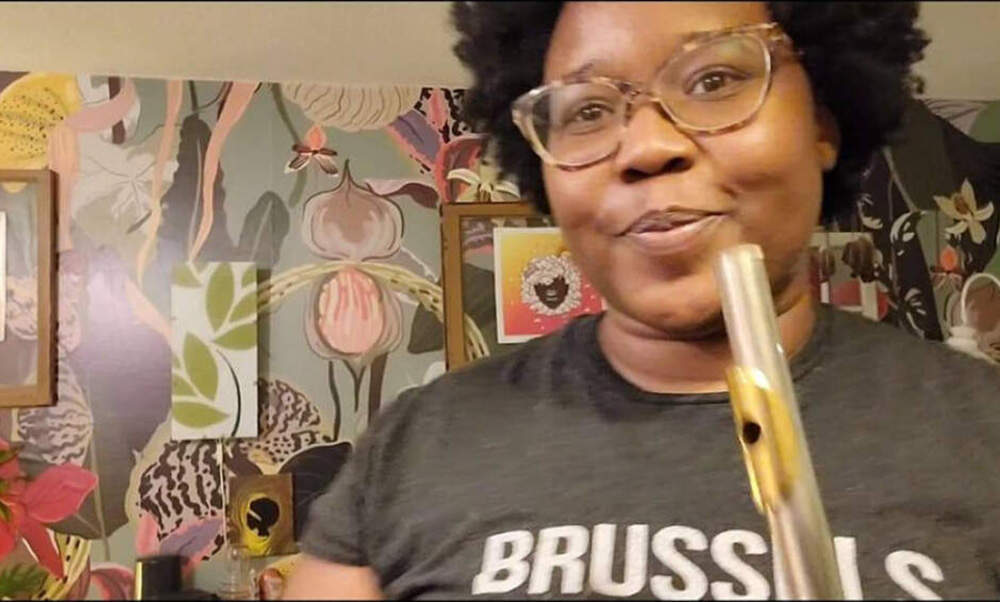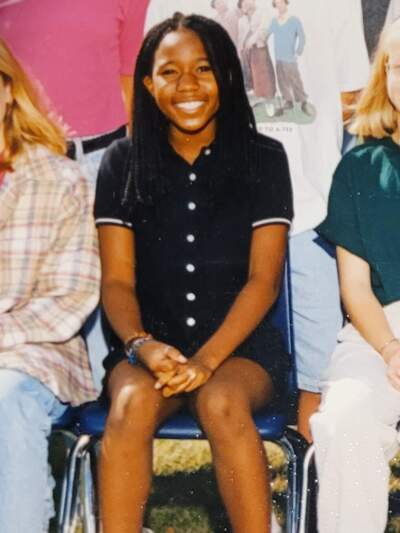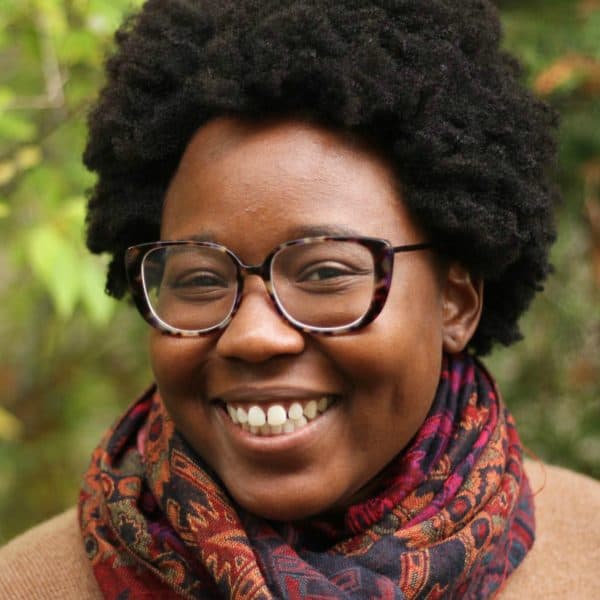Advertisement
Commentary
I thought re-learning the flute would be fun. It turned out to be much more

When I was in the seventh grade, I began taking private flute lessons from a woman named Nancy. We met weekly in her formal living room which was filled with what — to my preteen, midwestern, suburban eye — looked like fancy Victorian-era furniture. She had bright white hair and seemed impossibly old to me at the time. The first thing Nancy taught me to do was spit rice.
Pttth, Pttth, Pttth, Nancy instructed. And anytime my mouth posture slipped, she’d hand me some rice so I could re-invoke the muscle-memory. All these years later, I still know how to hold my cheeks and pull my tongue in just the right way to create a sound across my flute’s mouthpiece. What I’ve lost, is the tempo.

In sheet music, tempo is a visual, nuanced language that you translate into how quickly or slowly you play each note. Sonically, the difference between an eighth note and two sixteenth notes is huge, but I can never seem to correctly distinguish the tempo when I see the image of a quarter note with a tail versus two quarter notes connected by an overhead-bar. And when I’m playing my flute, I need to quickly make that translation from the page, to my mind, to my mouth and fingers — or else I lose the tempo.
I’ve taught and re-taught myself to play my flute plenty of times in the two decades since I first visited Nancy’s living room. Most recently, I downloaded an app — think Duolingo, but make it musical — and was delighted to find I still remembered how to read notes on sheet music, how to play a B-flat scale, and how to Pttth, Pttth, Pttth my way through “Mary Had a Little Lamb” and “Bringing Home A Baby Bumblebee.”
I was having fun, but my sight-reading-tempo challenges coupled with my unfamiliarity with most of the songs the app offered, made it hard for me to know if anything I was playing was even remotely recognizable.
Then, I fell in love with Billie Eilish’s “What Was I Made For” from the “Barbie” soundtrack. Like a muscle-memory, it reminded me of the perfect movie soundtrack songs from my youth: “Iris” by the Goo Goo Dolls and Aerosmith’s “Don’t Wanna Miss a Thing.” I bet I could play that song on my flute, I told myself.
So, I did. I googled and printed off the sheet music, and in a single night I taught myself to play it. I’m not generally a quick learner, but since I already knew the tempo, the song came so much easier. I made a video of my achievement, posted it to my social media, and couldn’t wait to figure out a new ditty to teach myself next.
Radiohead’s “Creep.” Blind Melon’s “No Rain.” Nirvana’s “Smells Like Teen Spirit.”
Advertisement
Each week felt like new musical adventure, made only more enjoyable by my weekly “Name That Tune” game in my family group chat. My mom isn’t much of a '90s alt-rock fan, so the only song she’d been able to guess was “Ain’t No Sunshine” by Bill Withers. I wanted to learn another song she would know, and I landed on “[The Sun Will Come Out] Tomorrow” from the “Annie” musical — a family favorite for the Okokon clan.
Then: October 7th happened.
Like most Americans, I cannot claim to be well versed in Hamas’s terrorism nor Israel’s occupation and blockade of the Palestinian territories. And before October 7th, I — shamefully — didn’t have even a basic awareness of my own government’s unconditional financial support of Israeli policies that have resulted in the oppression of the Palestinian people, policies many human rights organizations have characterized as apartheid.
I felt compelled to learn quickly.
As I scrolled my social media feeds, what was happening in the Middle East felt strangely familiar. Perhaps because as a Black American oppression is like muscle-memory.
Boko Haram in Nigeria, where my father was born, exemplified what can happen when a violent terrorist group demands control. The former Roxbury Love mural with Nelson Mandela had been a constant reminder of the evils of apartheid. And videos of Palestinian and Israeli mothers wailing in the streets reminded me of Philando Castille’s mother on the steps of a Minnesota courthouse, after a jury decided there would be no justice for the killing of her son. None of us are free until all of us are free, and my body has always known that.
None of us are free until all of us are free, and my body has always known that.
“[The Sun Will Come Out] Tomorrow” fills me with nostalgia, but something about its high notes has always grated on my nerves. Nonetheless, I shared a 30-second snippet in my family group chat, and my little sister loved it — she insisted that I record a full version and send her the whole thing. I obliged, but I could not bring myself to post the video on my social media channels.
After October 7, I — like many Americans — felt pressure to say something, do something, but I wasn’t sure I could translate what I felt in my heart. I was paralyzed. Worried about lacking nuance, and genuinely fearful that I might say something offensive.
The sun will come out, tomorrow
Betcha bottom dollar that tomorrow
There’ll be sun…
I know the tempo. I can Pttth, Pttth, Pttth the tune with expertise.
And I know no one really cares about videos of me playing the flute on Facebook. Still, I worried that this song, in this moment, would be like me posting some sort of a “thoughts and prayers” message for Palestinians and Israelis. Hollow noise that doesn’t actually do anything.
When I was a child, around the same time I started learning the flute, my friends and I used to mindlessly parrot the chant of “peace in the Middle East.” And these days, I can just as mindlessly end an Instagram post with a social justice hashtag. But the person I want to be is thought-filled, not just hope-filled: and I tend to convince myself that those two concepts are at odds with each other.
It is easy to let my ignorance and paralysis over saying the right thing get in the way of saying — or doing — anything.
The week of October 7, I learned and posted a Liz Phair song instead of the one from “Annie.” In the weeks since, I’ve read as much as I can and repeatedly called my representatives to advocate for a cease fire. I taught myself some Smashing Pumpkins and Red Hot Chili Peppers, and most recently I Pttth, Pttth, Pttth’ed my way through a birthday tribute to my little sister with the Backstreet Boys’ “I Want It That Way.”
But last night as I went to bed, I scrolled through the flute videos on my cell phone and revisited the one of me playing the song from “Annie.” For the first time ever, the high notes didn’t grate on my nerves. Instead, it felt like maybe — just maybe — the song was reminding me of the benefits of hope. I should share this, I told myself.
It is easy to let my ignorance and paralysis over saying the right thing get in the way of saying — or doing — anything. It is easy to tell myself that thoughts and prayers are nothing but a bunch of hollow noise. And it is easy to forget that hoping for a brighter tomorrow requires just as much effort as advocating and laboring for diplomacy.
I have never experienced war on the soil upon which I am attempting to live. I’ve never woken up to see the sun clouded by the smoke of endless gunfire, never felt the tempo of my own heart quicken as bombs rain down upon my homeland. I am never going to play as well as my flute idols Alanis Morrissette and Lizzo, and I am never going to be an expert on the Middle East.
But I am going to keep learning, and keep calling for peace.
And I am going to keep playing my flute.
